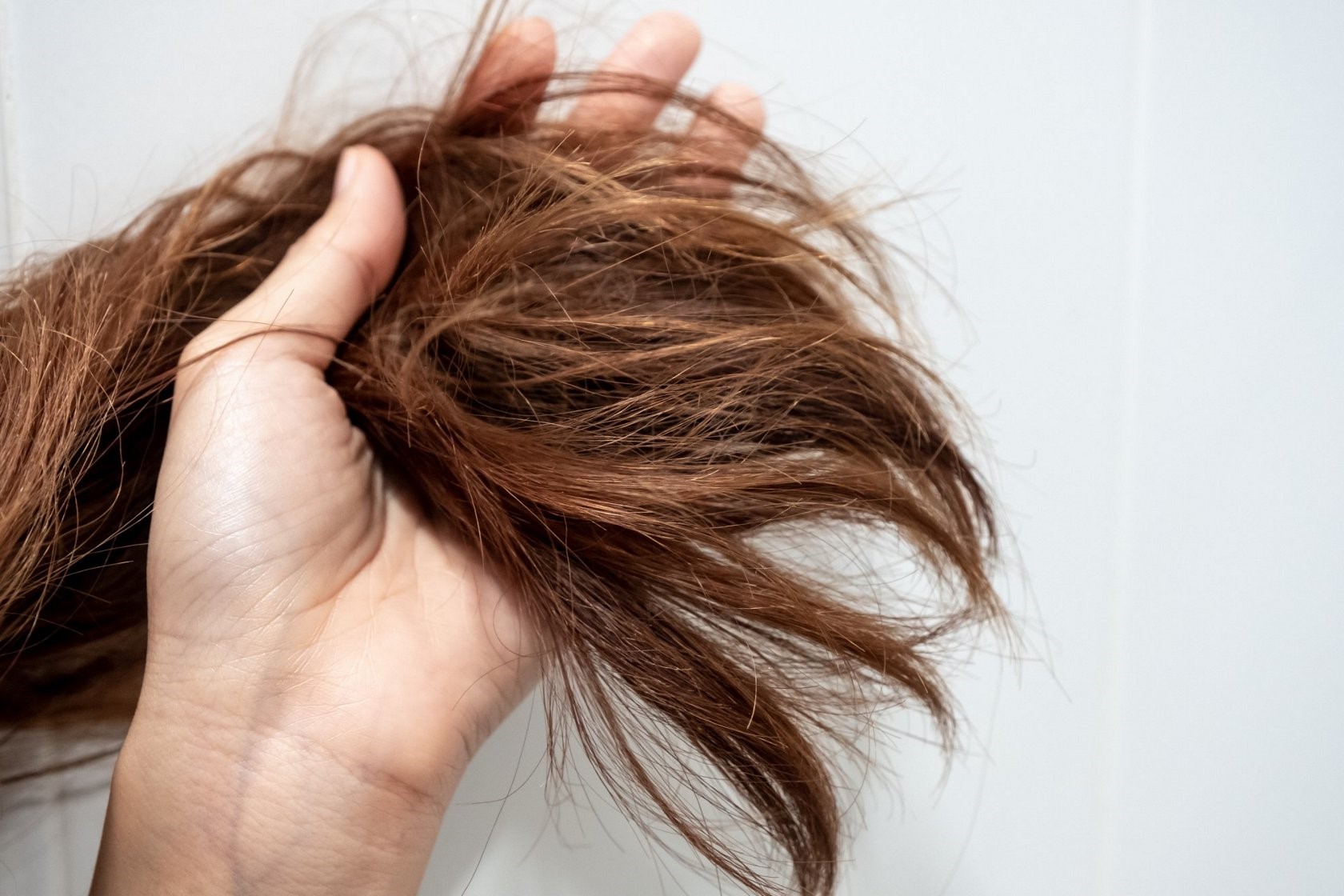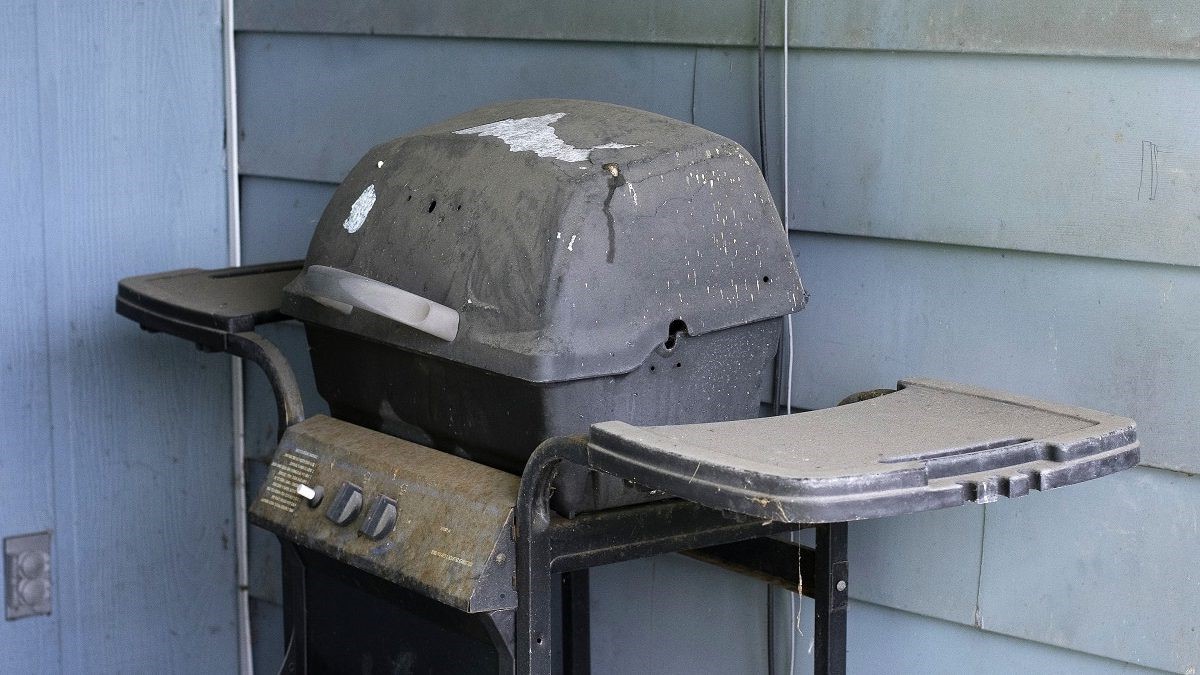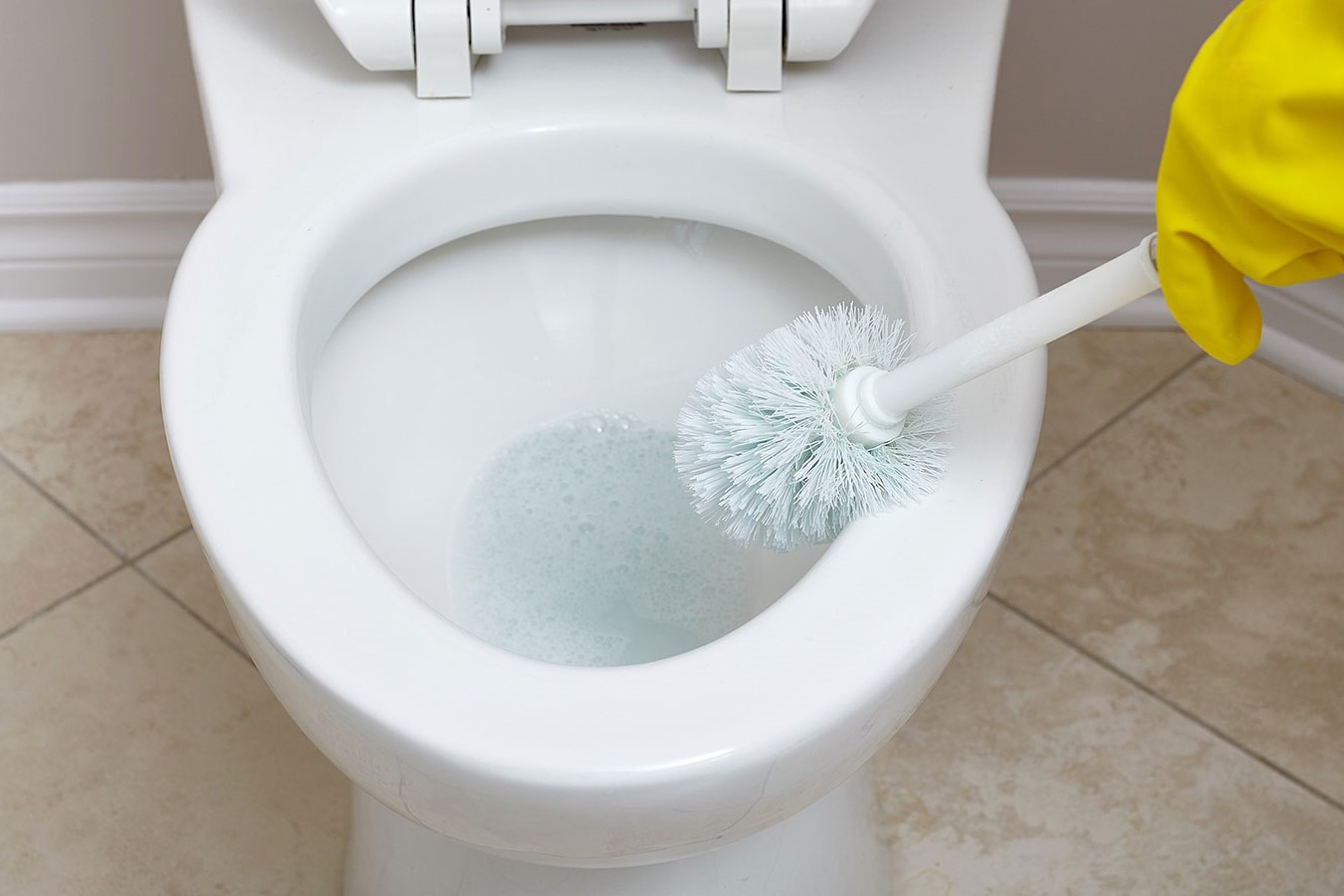Home>Health and Wellness>How To Get Rid Of A Tickle In Your Throat


Health and Wellness
How To Get Rid Of A Tickle In Your Throat
Published: March 3, 2024
Learn effective methods to alleviate a tickle in your throat and improve your health and wellness. Find relief with these proven remedies.
(Many of the links in this article redirect to a specific reviewed product. Your purchase of these products through affiliate links helps to generate commission for Noodls.com, at no extra cost. Learn more)
Table of Contents
Introduction
Have you ever experienced that irritating sensation in your throat that just won't go away? That persistent tickle can be incredibly bothersome, causing discomfort and even disrupting your daily activities. Whether it's a dry, scratchy feeling or an urge to clear your throat constantly, dealing with a tickle in your throat can be quite frustrating. However, fear not, as there are various remedies and strategies to help alleviate this pesky sensation.
In this comprehensive guide, we will delve into the causes of a tickle in your throat and explore effective home remedies and over-the-counter solutions to provide you with much-needed relief. Additionally, we will discuss when it might be necessary to seek medical attention for a persistent tickle in your throat. By the end of this article, you will have a thorough understanding of how to address this common discomfort and regain your peace of mind.
So, if you're tired of that nagging tickle in your throat and eager to find effective ways to combat it, read on to discover valuable insights and practical tips that can help you bid farewell to this bothersome sensation. Let's embark on this journey to uncover the secrets of soothing your irritated throat and restoring your comfort and well-being.
Read more: How To Get Rid Of Your Chip On The Shoulder
Understanding the Causes of a Tickle in Your Throat
A tickle in the throat can stem from various factors, and understanding the underlying causes is crucial in effectively addressing this discomfort. Here are some common reasons behind that persistent tickle:
-
Postnasal Drip: When excess mucus drips down the back of the throat, it can lead to irritation and a tickling sensation. This often occurs due to allergies, sinus infections, or colds.
-
Allergies: Allergic reactions to pollen, dust, pet dander, or other environmental allergens can trigger throat irritation, resulting in a persistent tickle.
-
Dry Air: In dry environments, such as heated indoor spaces or arid climates, the throat's mucous membranes can become dry and irritated, causing a tickling or scratchy feeling.
-
Acid Reflux: Gastroesophageal reflux disease (GERD) can cause stomach acid to back up into the throat, leading to inflammation and a sensation of something stuck or tickling in the throat.
-
Viral Infections: Respiratory viruses, such as the common cold or flu, can inflame the throat and airways, resulting in a ticklish or scratchy sensation.
-
Smoking: Tobacco smoke can irritate the throat and airways, leading to a persistent tickle and discomfort.
-
Throat Irritants: Exposure to irritants like strong odors, pollutants, or chemicals can cause throat irritation, manifesting as a tickle or scratchiness.
-
Stress and Anxiety: Emotional stress and anxiety can lead to throat muscle tension and a sensation of a lump or tickle in the throat.
By recognizing the potential culprits behind a tickle in your throat, you can better address the discomfort and choose appropriate remedies tailored to the specific cause. Now that we've explored the common triggers of a tickle in the throat, let's delve into effective home remedies and over-the-counter solutions to alleviate this bothersome sensation.
Home Remedies for Getting Rid of a Tickle in Your Throat
When it comes to addressing a tickle in your throat, several home remedies can provide relief and help soothe the irritation. These natural and accessible solutions can be effective in alleviating the discomfort without the need for medication. Here are some practical home remedies to consider:
-
Stay Hydrated: Drinking plenty of water helps keep the throat moist and can alleviate dryness, reducing the tickling sensation. Warm liquids, such as herbal teas or clear broths, can be particularly soothing.
-
Gargle with Salt Water: A saltwater gargle can help reduce throat inflammation and loosen mucus, providing relief from the tickle. Mix a teaspoon of salt in a glass of warm water and gargle several times a day.
-
Use a Humidifier: Adding moisture to the air with a humidifier can prevent the throat from becoming dry and irritated, especially in heated indoor environments.
-
Honey and Lemon: A mixture of honey and lemon in warm water can help soothe the throat and provide relief from irritation. The antibacterial properties of honey and the vitamin C in lemon can offer additional benefits.
-
Steam Inhalation: Inhaling steam from a bowl of hot water or taking a hot shower can help moisten the throat and loosen mucus, reducing the tickling sensation.
-
Throat Lozenges or Hard Candy: Sucking on throat lozenges or hard candy can stimulate saliva production, keeping the throat moist and providing temporary relief from the tickle.
-
Elevate Your Head: When sleeping, elevate your head with an extra pillow to prevent postnasal drip and reduce throat irritation during the night.
-
Avoid Irritants: Minimize exposure to smoke, strong odors, and other throat irritants to prevent further irritation and alleviate the tickling sensation.
By incorporating these home remedies into your daily routine, you can effectively manage and reduce the discomfort associated with a tickle in your throat. However, if the tickle persists or worsens despite trying these remedies, it may be necessary to explore over-the-counter solutions or seek medical advice.
Over-the-Counter Solutions for Relieving a Tickle in Your Throat
When home remedies alone are not sufficient to alleviate the persistent tickle in your throat, over-the-counter (OTC) solutions can offer additional relief. These readily available medications and products are designed to target specific symptoms and provide effective relief from throat irritation. Here are some OTC solutions to consider when seeking relief from a tickle in your throat:
-
Throat Lozenges or Sprays: OTC throat lozenges and sprays can provide temporary relief by numbing the throat and reducing irritation. Look for products containing ingredients such as menthol, benzocaine, or phenol, which can help soothe the tickling sensation and ease discomfort.
-
Antihistamines: If allergies are contributing to the tickle in your throat, OTC antihistamines can help alleviate symptoms by blocking the effects of histamine, a compound released during allergic reactions. These medications can reduce throat inflammation and minimize the sensation of throat irritation caused by allergies.
-
Decongestants: When postnasal drip is a contributing factor to the tickle in your throat, OTC decongestants can help alleviate nasal congestion and reduce the production of excess mucus. By addressing the underlying congestion, decongestants can indirectly provide relief from throat irritation and the associated tickling sensation.
-
Cough Suppressants: OTC cough suppressants, also known as antitussives, can help alleviate the urge to cough, which often accompanies a tickle in the throat. These medications work by suppressing the cough reflex, providing temporary relief from the irritation and discomfort associated with a persistent tickle.
-
Saline Nasal Sprays: If dry air or nasal congestion is contributing to the tickle in your throat, OTC saline nasal sprays can help moisturize the nasal passages and reduce irritation. By keeping the nasal passages moist, these sprays can alleviate postnasal drip and minimize throat discomfort.
-
Acid Reducers: For individuals experiencing a tickle in the throat due to acid reflux or GERD, OTC acid reducers, such as antacids or H2 blockers, can help neutralize stomach acid and reduce its impact on the throat. By addressing the underlying cause of throat irritation, these medications can provide relief from the tickling sensation.
When considering OTC solutions for relieving a tickle in your throat, it is important to carefully read and follow the instructions on the product labels. Additionally, if you have any underlying health conditions or are taking other medications, it is advisable to consult a healthcare professional before using OTC products to ensure their safety and effectiveness for your specific situation.
By incorporating these OTC solutions into your approach to managing a tickle in your throat, you can effectively target the underlying causes and symptoms, ultimately finding relief from this bothersome discomfort. However, if the tickle persists or worsens despite using OTC solutions, it may be necessary to seek medical advice to explore further treatment options.
When to See a Doctor for a Tickle in Your Throat
While many cases of a tickle in the throat can be effectively managed with home remedies and over-the-counter solutions, there are certain circumstances where seeking medical attention is warranted. If you experience the following symptoms or scenarios, it is advisable to consult a healthcare professional for further evaluation and guidance:
-
Persistent or Worsening Symptoms: If the tickle in your throat persists for an extended period, worsens over time, or is accompanied by other concerning symptoms such as difficulty swallowing, persistent hoarseness, or unexplained weight loss, it is important to seek medical attention. These symptoms could indicate underlying health issues that require professional assessment and treatment.
-
Fever and Severe Discomfort: The presence of a fever along with severe throat discomfort, particularly if it is accompanied by swollen glands, could be indicative of a more serious infection or inflammation. Consulting a doctor can help determine the underlying cause and appropriate treatment.
-
Chronic Health Conditions: Individuals with pre-existing health conditions such as asthma, chronic allergies, GERD, or immune system disorders may experience more severe or persistent throat symptoms. In such cases, it is important to consult a healthcare provider to ensure that the tickle in the throat is effectively managed within the context of the individual's overall health.
-
Persistent Cough or Breathing Difficulties: If the tickle in your throat is accompanied by a persistent cough, wheezing, or difficulty breathing, it may indicate an underlying respiratory issue that requires medical assessment. These symptoms could be indicative of conditions such as asthma, bronchitis, or pneumonia, necessitating professional evaluation and appropriate treatment.
-
Recurrent or Unexplained Symptoms: Individuals experiencing recurrent episodes of throat irritation or a persistent tickle without a clear underlying cause should seek medical advice. Recurring symptoms may warrant further investigation to identify any potential underlying conditions that require targeted treatment.
-
Impact on Daily Life: If the tickle in your throat significantly impacts your daily activities, sleep, or overall quality of life, it is advisable to consult a healthcare professional. Persistent discomfort that interferes with normal functioning may require medical intervention to address the underlying cause and provide effective relief.
In summary, while many cases of a tickle in the throat can be managed with home remedies and over-the-counter solutions, certain symptoms and circumstances warrant medical attention. By seeking timely evaluation and guidance from a healthcare professional, individuals can receive appropriate care and address any underlying health issues contributing to the persistent tickling sensation in the throat.
Read more: How To Get Rid Of Ants In Your Car
Conclusion
In conclusion, a tickle in the throat can be a persistent and bothersome discomfort, often stemming from a variety of causes such as postnasal drip, allergies, dry air, acid reflux, viral infections, smoking, throat irritants, and stress. Understanding the underlying factors contributing to this sensation is crucial in effectively addressing and alleviating the discomfort. By recognizing the potential triggers, individuals can tailor their approach to managing the tickle in their throat, whether through home remedies, over-the-counter solutions, or seeking medical advice when necessary.
Home remedies offer natural and accessible ways to soothe throat irritation and reduce the tickling sensation. From staying hydrated and using saltwater gargles to incorporating honey and lemon remedies, these simple yet effective approaches can provide relief without the need for medication. Additionally, over-the-counter solutions, such as throat lozenges, antihistamines, decongestants, and acid reducers, can offer targeted relief for specific symptoms and underlying causes contributing to the tickle in the throat.
However, it is important to recognize when medical attention is warranted. Persistent or worsening symptoms, the presence of fever and severe discomfort, chronic health conditions, recurrent or unexplained symptoms, and the impact on daily life are all indicators that necessitate consulting a healthcare professional for further evaluation and guidance.
By addressing a tickle in the throat proactively and seeking appropriate care when needed, individuals can effectively manage this discomfort and regain their comfort and well-being. Whether through simple home remedies, over-the-counter solutions, or medical intervention, finding relief from a persistent tickle in the throat is achievable, allowing individuals to go about their daily lives without the bothersome sensation hindering their well-being.
In essence, by understanding the causes, exploring effective remedies, and knowing when to seek medical advice, individuals can navigate the challenges posed by a tickle in the throat and take proactive steps toward alleviating this common discomfort. With the insights and strategies provided in this guide, individuals can empower themselves to address and overcome the nuisance of a tickle in the throat, ultimately restoring their peace of mind and comfort.














